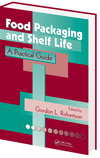Recycling Investment
Eastman Chemical to Build a $250 Million Advanced Recycling Plant
Depolymerization technology will take polyethylene plastic waste and convert it to a 'polyester renewal technology.'

Advanced recycling, or chemical recycling, is receiving a lot of attention from investors across the world as more companies explore commercialization. In the 2019 Closed Loop Ventures report, “Accelerating Circular Supply Chains for Plastics,” the findings revealed that 40 startups or companies are currently running commercial-scale recycling facilities in the U.S. or Canada, or have plans to do so in the next two years.
Eastman Chemical Co., Kingsport, Tenn., now falls into this category as it announced a $250 million investment in January 2021 to build a plastics sorting and methanolysis plant that will decompose polyester-based, multi-layer packaging. Eastman will employ methanolysis, and this process relies on heat and pressure to deconstruct plastic waste into component monomers, including dimethyl terephthalate (DMT), ethylene glycol (EG) and other specialty monomers.
Kodak originally developed methanolysis technology for polyester photographic films, and now Eastman, formerly known as Eastman Kodak, has been optimizing the process in the lab with hopes for large-scale plant production. At first, this new sorting and methanolysis facility will recycle more than 100,000 metric tons of plastic waste.

Photo courtesy of Eastman Chemical
“There's no compromise on the polymer in its performance and quality,” says Mark Costa, CEO of Eastman Chemical, in a January earnings call with investors. “Because we're rebuilding building blocks to be identical to what we normally get from fossil fuels, the product is identical.”
Eastman is known for its rigid, specialty products business around cosmetics, but Costa says “there's companies in the cosmetic packaging area as well as all these other fast-moving consumer goods that are working with us right now. So we are ahead in securing volume.”
The company, which doesn’t sell fossil-fuel based-PET products, said it would consider selling recycled PET. “We also have customers talking to us about how we could significantly scale and make PET for their needs around packaging,” says Costa. “We have customers calling us. We have peers calling us. We have governments calling us and asking us, can you sort of work with us to solve this problem.”

Photo courtesy of Eastman Chemical
The recycled feedstock can be used in many applications, including durable products such as electronics and automotive components.
This facility is expected to be mechanically complete by year-end 2022, and will contribute to the Eastman’s ambitious sustainability commitments for addressing the plastic waste crisis. This includes recycling more than 500 million pounds of plastic waste annually by 2030 via molecular recycling technologies. The company has also committed to recycling more than 250 million pounds of plastic waste annually by 2025.
Looking for a reprint of this article?
From high-res PDFs to custom plaques, order your copy today!








